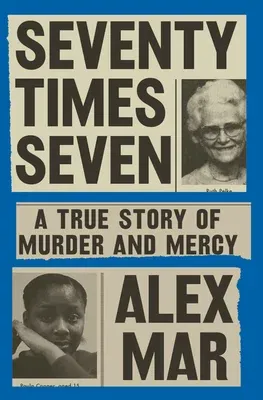"Alex Mar's bold yet sensitive account of one of America's youngest
death row inmates--and the people whose lives she forever changed--is
intimately reported, deeply moving, and unforgettable." --Robert Kolker,
New York Times bestselling author of Hidden Valley Road
"An absorbing work of social history and a story about the mystery and
miracle of forgiveness. This is a book of awesome scope, and it deserves
to be read with attention." --Hilary Mantel, Booker Prize-winning author
of the Wolf Hall trilogy
A masterful, revelatory work of literary non-fiction about a teenage
girl's shocking crime--and its extraordinary aftermath
On a spring afternoon in 1985 in Gary, Indiana, a fifteen-year-old girl
kills an elderly woman in a violent home invasion. In a city with a
history of racial tensions and white flight, the girl, Paula Cooper, is
Black, and her victim, Ruth Pelke, is white and a beloved Bible teacher.
The press swoops in.
When Paula is sentenced to death, no one decries the impending execution
of a tenth grader. But the tide begins to shift when the victim's
grandson Bill forgives the girl, against the wishes of his family, and
campaigns to spare her life. This tragedy in a midwestern steel town
soon reverberates across the United States and around the
world--reaching as far away as the Vatican--as newspapers cover the
story on their front pages and millions sign petitions in support of
Paula.
As Paula waits on death row, her fate sparks a debate that not only
animates legal circles but raises vital questions about the value of
human life: What are we demanding when we call for justice? Is
forgiveness an act of desperation or of profound bravery? As Bill and
Paula's friendship deepens, and as Bill discovers others who have chosen
to forgive after terrible violence, their story asks us to consider what
radical acts of empathy we might be capable of.
In Seventy Times Seven, Alex Mar weaves an unforgettable narrative of
an act of violence and its aftermath. This is a story about the will to
live--to survive, to grow, to change--and about what we are willing to
accept as justice. Tirelessly researched and told with intimacy and
precision, this book brings a haunting chapter in the history of our
criminal justice system to astonishing life.

